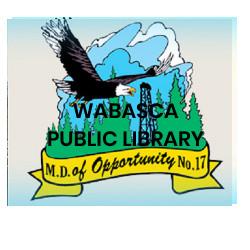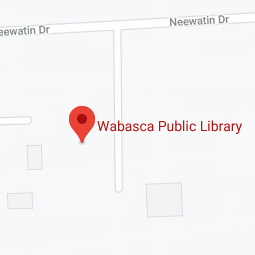Books on Residential Schools
Books on Residential Schools
Broken circle : the dark legacy of Indian residential schools : a memoir
Fontaine, Theodore, 1941- author
2010
The education of Augie Merasty : a residential school memoir
Merasty, Joseph Auguste, author
2017
Now a retired fisherman and trapper, the author was one of an estimated 150,000 First Nations, Inuit, and Metis children who were taken from their families and sent to government-funded, church-run schools, where they were subjected to a policy of "aggressive assimilation." As Augie Merasty recounts, these schools did more than attempt to mold children in the ways of white society. They were taught to be ashamed of their native heritage and, as he experienced, often suffered physical and sexual abuse. But, even as he looks back on this painful part of his childhood, Merasty's sense of humour and warm voice shine through.
Fatty legs : a true story
Jordan-Fenton, Christy, author
2020
Margaret Olemaun Pokiak-Fenton's powerful story of residential school in the far North has been reissued to commemorate the memoir's 10th anniversary with updates to the text, reflections on the book's impact, and a bonus chapter from the acclaimed follow-up, A Stranger at Home. New content includes a foreword from Dr. Debbie Reese, noted Indigenous scholar and founder of American Indians in Children's Literature, while Christy Jordan-Fenton, mother of Margaret's grandchildren and a key player in helping Margaret share her stories, discusses the impact of the book in a new preface.
Five little Indians
Good, Michelle, author
2020
Taken from their families when they are very small and sent to a remote, church-run residential school, Kenny, Lucy, Clara, Howie and Maisie are barely out of childhood when they are finally released after years of detention. Alone and without any skills, support or families, the teens find their way to the seedy and foreign world of Downtown Eastside Vancouver, where they cling together, striving to find a place of safety and belonging in a world that doesn't want them. The paths of the five friends cross and crisscross over the decades as they struggle to overcome, or at least forget, the trauma they endured during their years at the Mission. With compassion and insight, Five Little Indians chronicles the desperate quest of these residential school survivors to come to terms with their past and, ultimately, find a way forward.
Gaawin gindaaswin ndaawsii = I am not a number
Dupuis, Jenny Kay, author.
2019
When eight-year-old Irene is removed from her First Nations family to live in a residential school she is confused, frightened, and terribly homesick. She tries to remember who she is and where she came from despite the efforts of the nuns to force her to do otherwise. Based on the life of Jenny Kay Dupuis' own grandmother, I Am Not a Number brings a terrible part of Canada's history to light in a way that children can learn from and relate to.
I can make this promise
Day, Christine, 1993- author
2019
When twelve-year-old Edie finds letters and photographs in her attic that change everything she thought she knew about her Native American mother's adoption, she realizes she has a lot to learn about her family's history and her own identity.
Phyllis's orange shirt
Webstad, Phyllis, author
2019
When Phyllis Webstad (nee Jack) turned six, she went to the residential school for the first time. On her first day at school, she wore a shiny orange shirt that her Granny had bought for her, but when she got to the school, it was taken away from her and never returned. This is the true story of Phyllis and her orange shirt. It is also the story of Orange Shirt Day (an important day of remembrance for First Nations and non First Nations Canadians).
Seven fallen feathers : racism, death, and hard truths in a northern city
Talaga, Tanya, author
2017
Over the span of ten years, seven high school students died in Thunder Bay, Ontario. The seven were hundreds of miles away from their families, forced to leave their reserve because there was no high school there for them to attend. Tanya Talaga delves into the history of this northern city that has come to manifest, and struggle with, human rights violations past and present against aboriginal communities.
Sugar Falls : a residential school story
Robertson, David, 1977-, author
2021
"From Governor-General's Award-winning writer David A. Robertson comes this special edition of the timeless graphic novel that introduced the world to the awe-inspiring resilience of Betty Ross, and shared her story of strength, family, and culture. A school assignment to interview a residential school survivor leads Daniel to Betsy, who tells him her story. Abandoned as a young child, Betsy was soon adopted into a loving family. A few short years later, at the age of 8, everything changed. Betsy was taken away to a residential school. There she was forced to endure abuse and indignity, but Betsy recalled the words her father spoke to her at Sugar Falls--words that gave her the resilience, strength, and determination to survive. Sugar Falls is based on the true story of Betty Ross, Elder from Cross Lake First Nation. We wish to acknowledge, with the utmost gratitude, Betty's generosity in sharing her story. A portion of the proceeds from the sale of Sugar Falls goes to support the bursary program for The Helen Betty Osborne Memorial Foundation. This 10th-anniversary edition brings David A. Robertson's national bestseller to life in full colour, with a foreword by Senator Murrary Sinclair, Chairman of the Truth and Reconciliation Commission of Canada, and a touching afterword from Elder Betty Ross herself."-- Provided by publisher.
These are my words : the residential school diary of Violet Pesheens
Slipperjack, Ruby, 1952-, author
2016
They called me number one : secrets and survival at an Indian residential school
Sellars, Bev, 1955- author
2013
Up Ghost River : a chief's journey through the turbulent waters of Native history
Metatawabin, Edmund, 1947- author
2015






